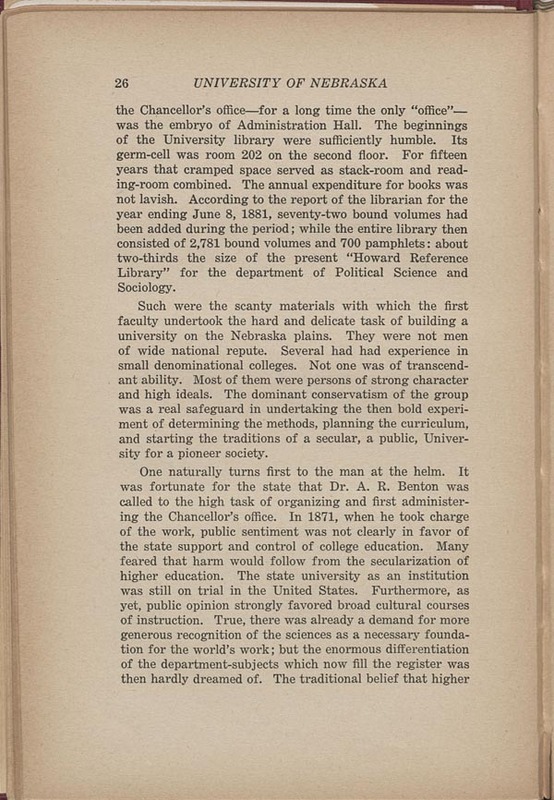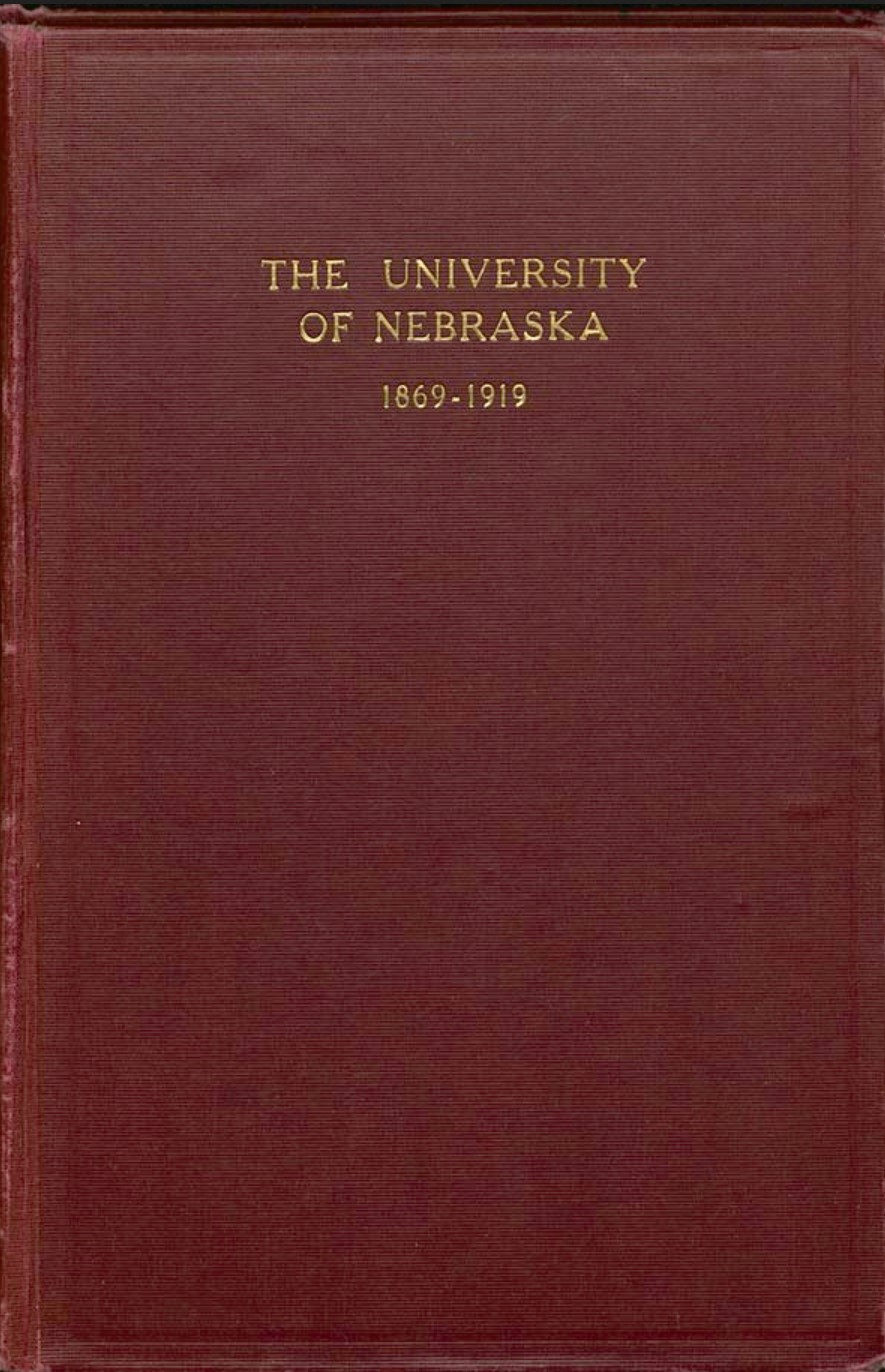030
Item
-
Title
-
030
-
Description
-
Semi-Centennial Anniversary Book: The University of Nebraska, 1869-1919
-
Transcription
-
the Chancellor's office—for a long time the only "office"—was the embryo of Administration Hall. The beginnings of the University library were sufficiently humble. Its germ-cell was room 202 on the second floor. For fifteen years that cramped space served as stack-room and reading-room combined. The annual expenditure for books was not lavish. According to the report of the librarian for the year ending June 8, 1881, seventy-two bound volumes had been added during the period; while the entire library then consisted of 2,781 bound volumes and 700 pamphlets: about two-thirds the size of the present "Howard Reference Library" for the department of Political Science and Sociology. Such were the scanty materials with which the first faculty undertook the hard and delicate task of building a university on the Nebraska plains. They were not men of wide national repute. Several had had experience in small denominational colleges. Not one was of transcendant [sic] ability. Most of them were persons of strong character and high ideals. The dominant conservatism of the group was a real safeguard in undertaking the then bold experiment of determining the methods, planning the curriculum, and starting the traditions of a secular a public, University for a pioneer society. One naturally turns first to the man at the helm. It was fortunate for the state that Dr. A. R. Benton was called to the high task of organizing and first administering the Chancellor's office. In 1871, when he took charge of the work, public sentiment was not clearly in favor of the state support and control of college education. Many feared that harm would follow from the secularization of higher education. The state university as an institution was still on trial in the United States. Furthermore, as yet, public opinion strongly favored broad cultural courses of instruction. True, there was already a demand for more generous recognition of the sciences as a necessary foundation for the world's work; but the enormous differentiation of the department—subjects which now fill the register was then hardly dreamed of. The traditional belief that higher
-
Rights
-
To inquire about usage, please contact Archives & Special Collections, University of Nebraska-Lincoln Libraries. These images are for educational use only. Not all images are available for publication.



